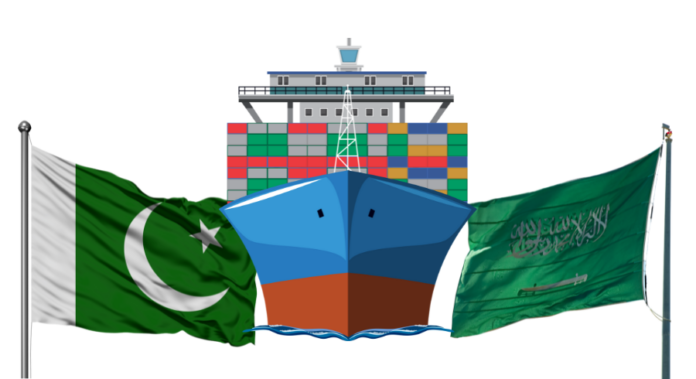The business community has expressed strong support for the recent strategic defence agreement between Pakistan and Saudi Arabia, calling it a key milestone in bilateral relations.
The leadership of the Federation of Pakistan Chambers of Commerce and Industry (FPCCI) has also urged the government to fast-track a Free Trade Agreement (FTA) with Saudi Arabia to capitalize on the strengthened ties and boost trade between the two nations.
The FPCCI highlighted that while Saudi Arabia imports goods worth $238 billion annually, Pakistan’s share is only $732 million. India, they noted, already benefits from an FTA with Saudi Arabia. FPCCI members are now urging the Ministry of Commerce to expedite an FTA to increase Pakistan’s exports and expand its share of the Saudi market.
At a press conference in Karachi, Acting President of FPCCI, Saqib Fayyaz Magoon, stated that the defence pact had already had a positive impact on the Pakistan Stock Exchange (PSX). He emphasized the urgent need for a trade agreement with Saudi Arabia to further strengthen economic relations.
FPCCI Vice President Nasir Khan added that the defence agreement presents an opportunity for Pakistan to reduce its reliance on the IMF and encourage stronger domestic economic activity.
Muhammad Zubair Motiwala, Chairman of the Businessmen Group and former President of the Karachi Chamber of Commerce and Industry, remarked that the agreement has elevated Pakistan-Saudi ties to a strategic level. He emphasized that while the focus is on defence cooperation, the long-term impact could extend into economic, industrial, and social collaboration.
Motiwala further outlined opportunities in education, suggesting that academic exchanges, scholarships, and technical training programs could significantly enhance Pakistan’s human capital. He also highlighted the potential for joint training centers to equip Pakistani youth with competitive skills for the global workforce, particularly in the Gulf, where millions of Pakistanis are employed.
In terms of infrastructure and industrial collaboration, Motiwala pointed to Saudi investment in ports, highways, and urban development projects as key areas that could accelerate Pakistan’s modernization. He also suggested that joint ventures in sectors like steel, cement, fertilizer, and defence production could drive new avenues of growth.
The petrochemical and energy sectors were identified as areas where Pakistan could benefit greatly from Saudi expertise in refining, petrochemicals, renewable energy, and oil storage. Motiwala also proposed that Saudi investors may expand their investments in Pakistan, particularly in Karachi, the country’s industrial and commercial hub.




